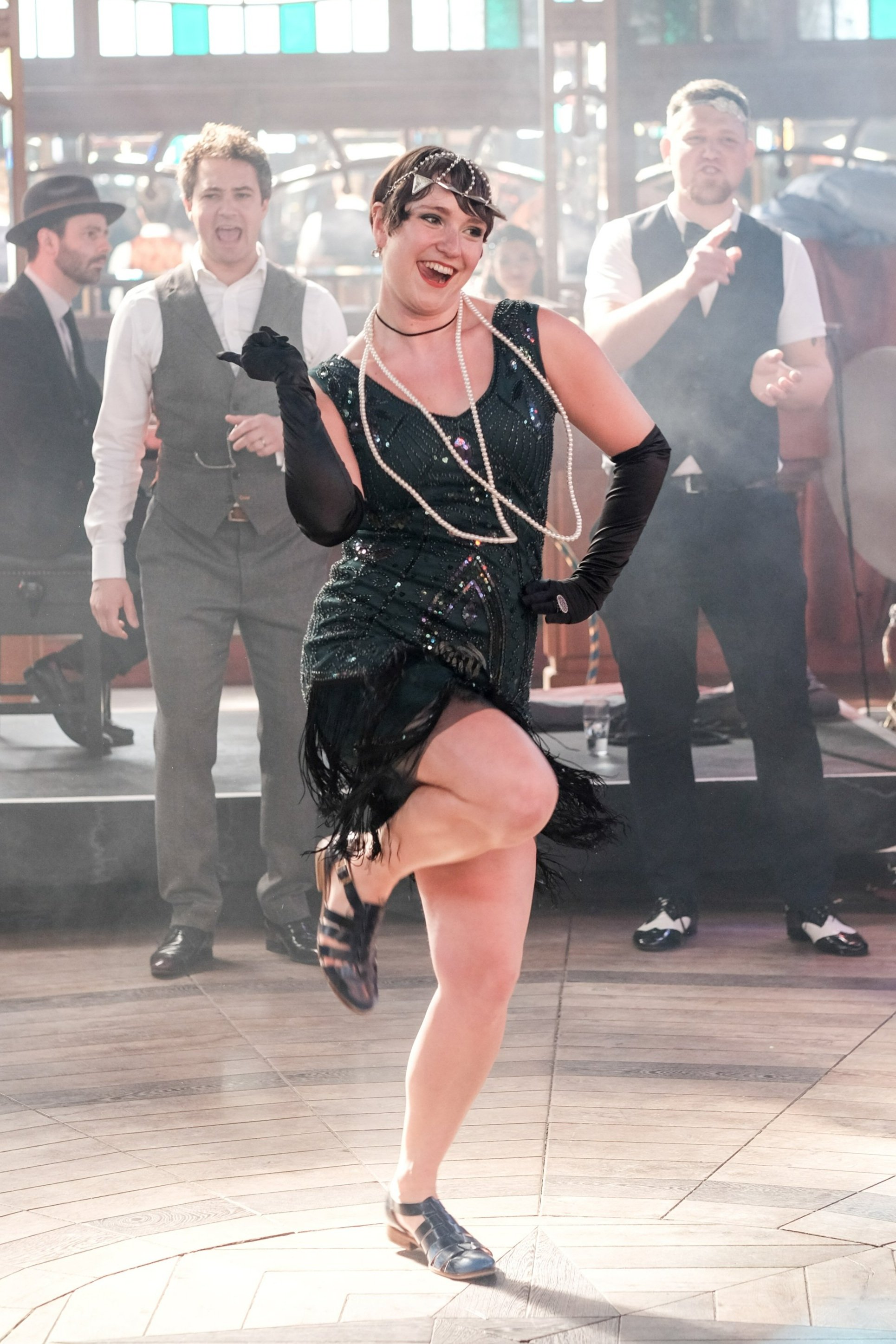The 1920s, a decade of dramatic social and cultural change, is often referred to as the “Roaring Twenties.” This era was marked by a spirit of rebellion, modernity, and a newfound sense of freedom, particularly for women. One of the most iconic symbols of this era was the flapper dress, a garment that embodied the changing times and the aspirations of a generation.
What was a Flapper Dress?
A flapper dress was a short, loose-fitting dress with a dropped waistline, often adorned with beads, sequins, and fringe. It was designed to allow for ease of movement, reflecting the energetic and liberated lifestyle of the flapper girls. These dresses were a stark contrast to the restrictive and often uncomfortable clothing styles of previous decades.

The Flapper Girl: A New Era of Women’s Fashion
The flapper girl was a young woman who defied societal norms and embraced a more independent and carefree lifestyle. She was often seen smoking cigarettes, drinking alcohol, and dancing the Charleston. The flapper dress was the perfect attire for this new woman, as it allowed her to move freely and express herself without constraint.
Key Features of a Flapper Dress
Short Length: The most distinctive feature of a flapper dress was its short length, often reaching just above the knee. This was a radical departure from the long, floor-length dresses that were popular in previous decades.
The Impact of the Flapper Dress on Fashion
The flapper dress had a profound impact on fashion, paving the way for more relaxed and comfortable clothing styles. It challenged traditional notions of femininity and encouraged women to embrace their individuality. The influence of the flapper dress can still be seen in modern fashion, particularly in the use of loose-fitting silhouettes, short hemlines, and decorative embellishments.
Conclusion
The flapper dress is more than just a piece of clothing; it is a symbol of a transformative era in history. It represents the spirit of rebellion, freedom, and individuality that defined the Roaring Twenties. By understanding the history and significance of the flapper dress, we can appreciate the enduring impact of this iconic garment on fashion and culture.
FAQs
1. What materials were typically used to make flapper dresses?
Flapper dresses were often made from lightweight, flowing fabrics such as silk, chiffon, and satin. These materials allowed for ease of movement and a comfortable fit.
2. How did flapper dresses influence modern fashion?
Flapper dresses have had a significant impact on modern fashion, inspiring designers to create more relaxed and comfortable clothing styles. The use of loose-fitting silhouettes, short hemlines, and decorative embellishments can all be traced back to the flapper dress era.
3. What accessories were commonly worn with flapper dresses?
Flapper girls often accessorized their dresses with long beaded necklaces, cloche hats, and t-strap shoes. They also carried small, beaded purses.
4. How did the flapper dress challenge societal norms?
The flapper dress challenged societal norms by promoting a more relaxed and carefree attitude towards fashion. It also symbolized the increasing independence and freedom of women during the Roaring Twenties.
5. What were some of the popular hairstyles and makeup trends of the flapper era?
Flapper girls often wore their hair short in a bob or finger wave style. They also favored bold makeup, including dark eyeliner, red lipstick, and rouged cheeks.



:max_bytes(150000):strip_icc()/tl-dinner-outfits-you-need-to-pack-tout-239810950f36498c85ae06095251d49d.jpg?w=200&resize=200,112&ssl=1)



